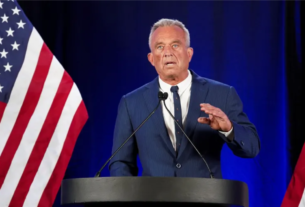The World Health Organization (WHO) has warned that US policies are negatively affecting global health. Funding cuts and restrictions on medical aid are slowing disease control efforts and putting millions of lives at risk.
“Health should not be a political issue,” said WHO Director-General Dr. Tedros Adhanom Ghebreyesus. He criticized US decisions that have reduced support for vaccination programs, emergency response efforts, and medical research.
The US has historically been the largest contributor to global health programs. Recent policy changes have led to major reductions in funding for WHO and other international health organizations.
A report by the Global Health Policy Center found that these cuts have weakened the fight against infectious diseases. Programs targeting malaria, tuberculosis, and HIV have suffered as a result.
Some US policies have also restricted access to essential medicines. Limits on foreign aid have disrupted vaccination campaigns and maternal health programs in developing countries.
Doctors Without Borders has warned that these policies could lead to preventable deaths. “When funding is cut, the people who suffer the most are those in poor and crisis-affected regions,” a spokesperson said.
The WHO says that pandemic preparedness efforts have also been affected. Delays in disease surveillance and response efforts increase the risk of future outbreaks.
US officials argue that foreign aid should be reduced to focus on domestic issues. Some lawmakers claim that global health funding does not directly benefit US citizens.
Health experts disagree, warning that infectious diseases do not respect borders. “A disease outbreak anywhere can spread everywhere,” said Dr. Anthony Fauci, former director of the National Institute of Allergy and Infectious Diseases.
The impact of US policies is already being seen in several countries. In sub-Saharan Africa, HIV prevention programs have scaled back due to a lack of funding.
A malaria research project in Southeast Asia has also been affected. Scientists say progress in developing new treatments has slowed due to budget cuts.
The WHO has urged the US to reconsider its approach. Health officials warn that weakened global health systems could make future pandemics harder to control.
Some countries have tried to fill the funding gap left by the US. The European Union and private donors have increased contributions to global health programs.
Experts say these efforts are not enough to replace lost US funding. Many health initiatives still struggle to provide life-saving treatments and vaccines.
The US government has defended its decisions. Officials say they want more transparency and accountability in how global health funds are used.
Some lawmakers have proposed restoring funding for key health programs. Others argue that the US should reduce involvement in international organizations.
The WHO warns that without urgent action, global health progress could reverse. Millions of people depend on international aid for medical care and disease prevention.
A recent cholera outbreak in Yemen highlights the need for continued support. Health workers there say limited resources have made it harder to contain the disease.
The WHO continues to work with other countries to address funding challenges. Officials say collaboration is essential to preventing future health crises.
Global health leaders are calling for long-term solutions. They argue that investing in health systems benefits both rich and poor countries.
The debate over US global health policy is unlikely to end soon. For now, health workers on the front lines must do more with fewer resources.




